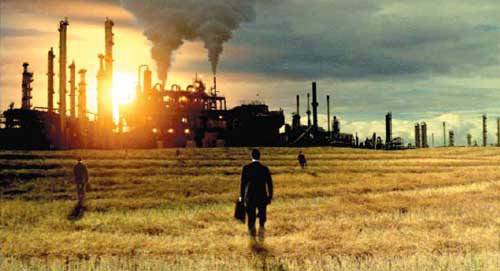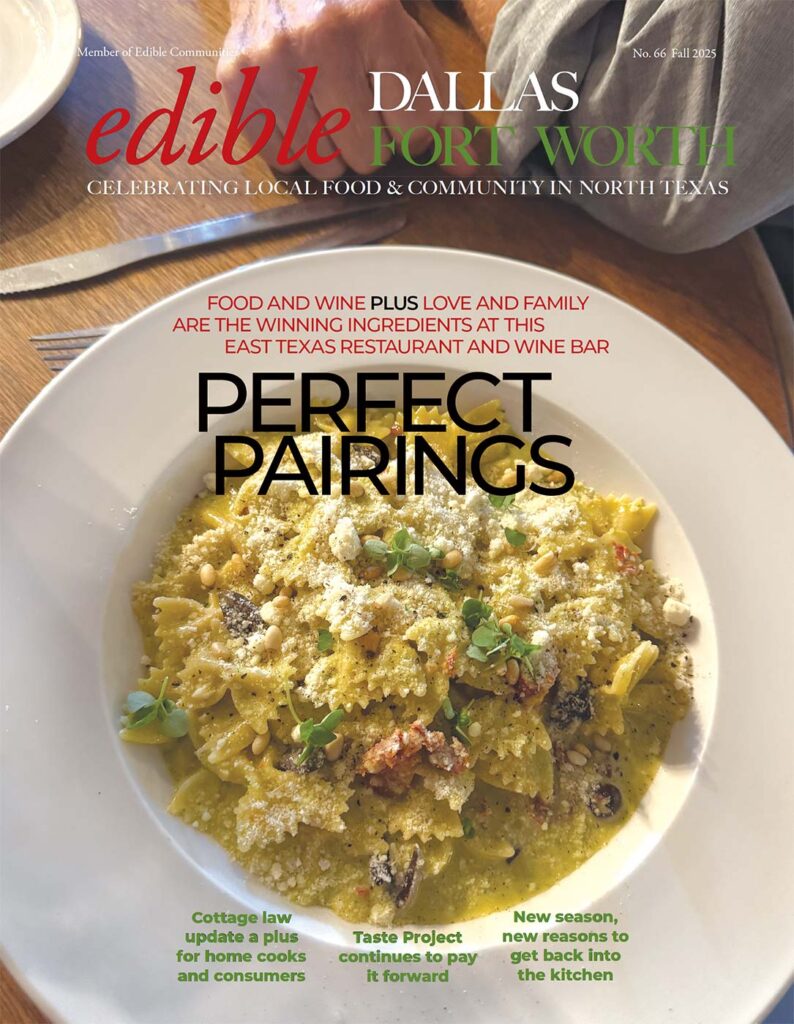Food For Thought

If “we are what we eat”, the American food chain is in need of a makeover, according to the new documentary Food Inc.
Just as An Inconvenient Truth issued warnings about pollutants and rallied us to protect the planet, Food Inc. raises the red flag on food conglomerates and challenges American consumers to value and reclaim the good things that nature has laid upon their tables.
“I didn’t set out to create a scathing piece on the food industry,” explains the film’s director Robert Kenner. “I simply wanted to show how our food is produced. What I got was a much larger story.”
Food Inc. is an informative mix of interviews, behind-the-scenes footage, clever graphics, and engaging music: a sweet and sour blend that both educates and entertains.
“There are moments that will make you smile and others that will make you wince, but I hope you leave the theater a more knowledgeable consumer,” says Kenner.
Eric Schlosser, investigative journalist and renowned author of the book Fast Food Nation, collaborated with Kenner on the project. Schlosser is featured in the film along with another prominent food expert, Michael Pollan, author of The Omnivore’s Dilemma, a book that greatly influenced the director. Kenner’s own impressive list of credits includes the award-winning Vietnam documentary, Two Days in October.
“When Eric and I began talking, we realized that all food has become like fast food. In today’s marketplace, quantity is valued over quality, and efficiency over flavor,” Kenner states. “We want our chickens to be boneless and our tomatoes to be season-less. Unfortunately, our regulatory agencies are too often toothless.”
Fifty years ago the McDonald’s brothers revolutionized the restaurant business with highly profitable assembly line kitchens that emphasized uniformity and cheapness. In time, the massive buying power of the fast food industry transformed the entire food production system. Today the American diet is more in sync with the latest marketing slogan than the changing of the seasons.
“The way we eat has changed more in the last fifty years than in the previous 10,000,” explains Kenner. “These days decisions dictating how food is produced are more frequently made in corporate board rooms than on the family farms.”
Kenner was not surprised by what he heard about the state of the industry; what he was not prepared for was the shroud of secrecy and fear that hindered his ability to get the story.
“The degree of intimidation was shocking,” says Kenner. “I encountered it again and again. One of the reasons it took us so long to complete the movie was because it was nearly impossible to gain access to these large corporations. Lots of false smiles and promises, but little cooperation.”
Ultimately Kenner with camera in hand wriggles through the fence holes and peels back the packaging. What he finds is a handful of companies tightening their stronghold on the way the nation’s food moves from “seed to super market.”
He discovers a world of massive factory farms and mega-industrial plants, the antithesis of the storybook red barns and bucolic green fields of Virginia farmer Joel Salatin, whose homespun words and grass-fed livestock are sprinkled throughout the film.
Alongside Salatin are other forthright farmers, businessmen, labor activists, consumer advocates and food experts who put themselves at risk by speaking out.
A Maryland chicken farmer shows filmmaker Kenner firsthand what antibiotics and high-tech breeding are doing to the nation’s chickens. In North Carolina, Kenner’s camera peers into the largest slaughterhouse in the world, where over 32,000 hogs are killed daily.
The film’s most poignant moments belong to Barbara Kowalcyk, a mother who becomes a food safety advocate after her two-year-old son Kevin dies from consuming a hamburger tainted with E. coli. During a pivotal moment, Kenner asks Ms. Kowalcyk about the changes she’s made to her own eating habits since the death of her son. Though she works tirelessly to inspire awareness and change laws, she won’t respond to the question.
“This floored me.” said Kenner, “Barbara, who’s lost a child, refuses to comment on film because she’s afraid she’ll be sued. That really drove home the point regarding the power these companies wield.”
According to the film, the average American supermarket offers consumers 47,000 products, an illusionary “cornucopia of choice.” In fact, most center-aisle junk foods are factory-processed rearrangements of the same few government-subsidized commodity crops.
Kenner follows a working-class family of four who finds it too costly to choose nutritious fruits and vegetables over the cheap empty calories of fast foods, in spite of the fact that the father struggles with diabetes.
“What people fail to consider,” says Kenner, “is the huge health costs down the road. Healthy eating should not be an elitist movement. Why is a pound of broccoli more expensive than a bag of cheeseburgers?”
Kenner finds rays of hope both inside and outside the system.
Stonyfield Farm’s Gary Hirshberg, who has grown his seven-cow farm into the No. 3 yogurt provider in the country, believes that the best way to create dramatic change is by becoming a Goliath. He reminds skeptics of the vast quantities of pesticides that are saved each time a retailer like Wal-Mart issues a purchase order for his organic yogurts.
“The irony is that the average consumer does not feel very powerful,” Hirshberg tells Kenner. “[…] Trust me, it’s the exact opposite. Those businesses spend billions of dollars to tally our votes. When we run an item past the supermarket scanner, we’re voting.”
Though Kenner worries that his film may have been too easy on Wal- Mart, he reiterates Hirshberg’s sentiment that an informed, demanding consumer is the key to making a difference.
“Things can change in this country,” says Kenner. “It changed against the big tobacco companies. We have to influence the government and readjust these scales back into the interest of the consumer. We did it before, and we can do it again.”
The documentary Food Inc. was one of seventy-seven films featured at AFI-Dallas’ spring festival. Following one of its screenings, director Robert Kenner invited members of the edible Dallas and Fort Worth staff to join him to discuss the film.
A native New Yorker and a resident of Los Angeles, Kenner, already a fan of the edible Ojai, was delighted to hear that our publication (edible Dallas & Fort Worth) had just premiered in North Texas.
Food Inc. opens at Dallas’ Magnolia Theater on June 19 and at the Angelika on June 26.
As a kid, TERRI TAYLOR refused to eat her vegetables. Her veggie-phobia was cured in 1977 when she spent eight months working on farms in Norway and France. She studied journalism at UT-Austin and received a master’s degree in liberal arts from SMU. Her short story “Virginia” can be found in Solamente en San Miguel, an anthology celebrating the magical Mexican town of San Miguel de Allende. She has written for Edible DFW since its inaugural issue in 2009. She became the magazine’s editor in 2010 and is the editor of Edible Dallas & Fort Worth: The Cookbook.
- Terri Taylorhttps://www.edibledfw.com/author/ttaylor/
- Terri Taylorhttps://www.edibledfw.com/author/ttaylor/
- Terri Taylorhttps://www.edibledfw.com/author/ttaylor/
- Terri Taylorhttps://www.edibledfw.com/author/ttaylor/





